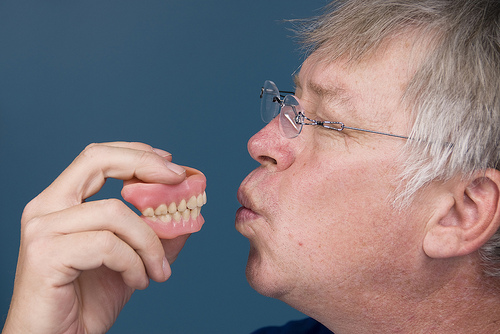Tooth Discoloration: Common Causes and What You Can Do To Stop It
June 27th, 2013

Looking back at childhood photos, you may notice picture after picture of yourself with a mouthful of shiny white teeth. When you look in the mirror today, you wonder what happened to that beautiful smile. Many adults struggle with tooth discoloration and find it embarrassing to show off their teeth in a smile. Once you identify the cause of your tooth discoloration, there are treatment options at Princeton Restorative & Implant Dentistry that can restore your teeth and your confidence.
What Causes Tooth Discoloration?
There are a host of factors that may cause your teeth to discolor. Some are directly under your control, and others may not be preventable. Here is a list of common reasons that teeth become discolored.
- Genetics: Much of your dental health is determined by genetic factors beyond your control. Some people naturally have thinner enamel or discolored teeth.
- Medications: Several medications lead to tooth discoloration as a side effect. If you received the common antibiotics doxycycline or tetracycline as a child, your teeth may have discolored as a consequence. Antihistamines, high blood pressure medications, and antipsychotic drugs can also discolor teeth. If you think a medication may be leading to tooth discoloration, talk to Dr. Stephen Hudis. Never discontinue the use of a medication without consulting your doctor, however.
- Medical Conditions: Genetic conditions such as amelogenesis or dentinogenesis cause improper development of the enamel, and can lead to yellowed, discolored teeth.
- Poor Dental Hygiene: Failing to brush your teeth at least twice a day or regularly floss may lead to tooth decay and discoloration.
- Foods and Tobacco: Consumption of certain foods, including coffee, tea, wine, soda, apples, or potatoes, can cause tooth discoloration. Tobacco use also causes teeth to turn yellow or brown.
Treatments for Tooth Discoloration
There are a variety of treatments available to individuals with discolored teeth. One of the easiest ways to reduce tooth discoloration is through prevention. Avoid drinking red wine, soda, or coffee and stop using tobacco products. If you drink beverages that tend to leave stains, brush your teeth immediately or swish with water to reduce staining.
After determining the cause of tooth discoloration, Dr. Stephen Hudis can suggest other treatment options. Over-the-counter whitening agents might help, but in-office whitening treatments provided at our Princeton, NJ office would be more effective. When whitening agents do not help, bondings or veneers are among the alternative solutions for tooth discoloration.
If you are worried about your teeth becoming yellow or brown, think carefully about your diet and medication use. Talk to Dr. Stephen Hudis to identify substances that may be causing the problem. After treatment for tooth discoloration, you will have a beautiful white smile you can be proud to show off.







